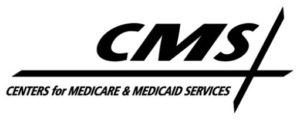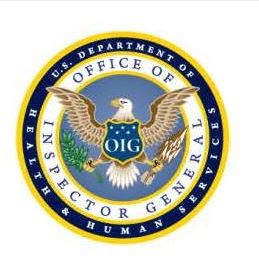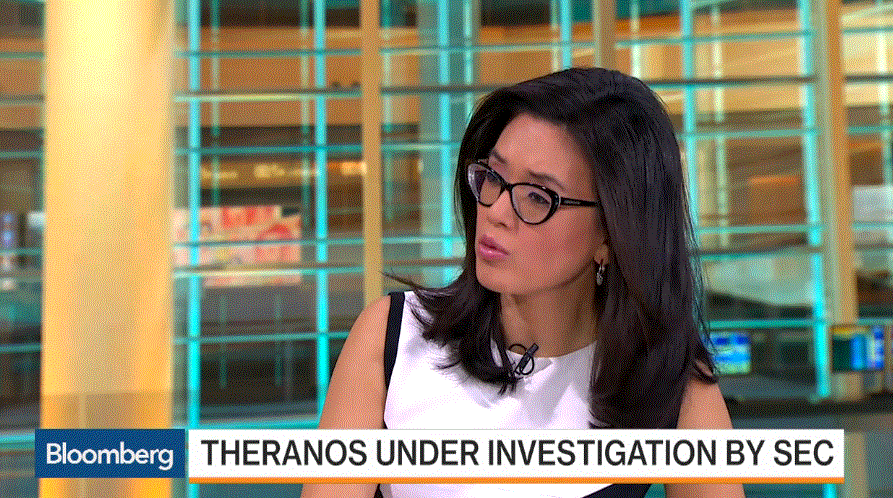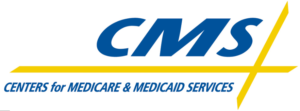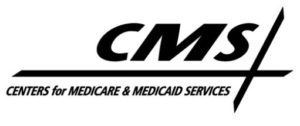- Gold Stars for Stellar Adherence (pharmacytimes.com)
Medicare Advantage and other supplemental Part D plans encourage medication adherence to achieve higher star ratings... This rating system measures insurance plan quality, as higher quality plans improve patient outcomes and minimize costs. Adherence represents 10.9% and 29.5% of Medicare Advantage and supplementary plans’ star ratings, respectively...Community pharmacies...have initiated automatic refill programs to improve adherence. These programs have the added benefit of boosting insurance plans’ star ratings...(CMS) confidently assumes that patients of brick-and-mortar pharmacies use their refills if they pick up the prescriptions...researchers reported that an automated prescription refill program improved medication adherence of Medicare Part D patients...Easing barriers to refilling prescriptions enhances adherence, and reinforced adherence enhances pharmacy sales directly and indirectly. Insurance companies prefer pharmacies that strengthen their star ratings; they’re less likely to engage with pharmacies with mediocre adherent patient populations from coverage, and they provide bonuses to pharmacies for high adherence...Future studies assessing the impact of automatic refill programs should develop a superior method of measuring actual medication intake.
- Many Well-Known Hospitals Fail To Score High In Medicare Rankings (npr.org)
The federal government released its first overall hospital quality rating...slapping average or below average scores on many of the nation's best-known hospitals while awarding top scores to many unheralded ones....The Centers for Medicare & Medicaid Services rated 3,617 hospitals on a one- to five-star scale, angering the hospital industry, which has been pressing the Obama administration and Congress to block the ratings...Hospitals argue that the government's ratings will make teaching hospitals and other institutions that treat many tough cases look bad. They argue that their patients are often poorer and sicker when admitted, and so are more likely to suffer further complications or die, than at institutions where the patients aren't as sick...Rick Pollack, president of the American Hospital Association, called the new ratings confusing for patients and families..."We are especially troubled that the current ratings scheme unfairly penalizes teaching hospitals and those serving higher numbers of the poor."..."Hospitals cannot be rated like movies," Dr. Darrell Kirch, president of the Association of American Medical Colleges..."We are extremely concerned about the potential consequences for patients that could result from portraying an overly simplistic picture of hospital quality with a star-rating system that combines many complex factors and ignores the socio-demographic factors that have a real impact on health."
- Medicare Part D spending on compounded drugs is skyrocketing (statnews.com)
As federal regulators try to crack down on compounding pharmacies over safety concerns, a new report finds that spending by the Medicare Part D program for these medicines rose more than 600 percent over the past decade. And federal auditors say the trend raises questions about whether the drugs, which are customized for specific patient needs, were medically necessary or dispensed appropriately...Between 2006 and 2015...spending for compounded drugs went from $70 million to $508 million, a 625 percent increase...By comparison, spending for all prescription drugs covered by the program rose 167 percent during the same period...Center for Medicare and Medicaid Services...will review the data brief OIG (Office of the Inspector General) released as it continues to monitor drug spending and trends in Part D...the International Academy of Compounding Pharmacists...does not condone marketing or billing practices involving fraud, waste or abuse…Clearly, proper controls around the billing of compounded medications are needed to ensure patients can still access these important medications. It is apparent from the OIG report those proper controls are not in place...
- Theranos wasn’t ‘forthcoming’: business school professors (cnbc.com)Theranos CEO 'devastated' amid lab testing issues (cnbc.com)Theranos Adds SEC Investigation to Blood Test Scrutiny (bloomberg.com)
Blood-testing start-up Theranos took a number of management missteps that led to its most recent tangle with health regulators...For several months, federal health regulators have raised concerns about the accuracy of the company's blood-testing technology...the Centers for Medicare and Medicaid Services threatened to impose stiff sanctions on the company — including a ban that could prohibit Theranos CEO Elizabeth Holmes from owning or running a lab for at least two years...Theranos has never been forthcoming about its test results...If Theranos is ultimately sanctioned, however, it could spell out the company's demise...
- Controversial rating system gives six Nevada hospitals one star (reviewjournal.com)
Five Southern Nevada hospitals were among six statewide that received only one star in a controversial five-star rating system unveiled...by the Centers for Medicare &Medicaid Services....Two Nevada hospitals got four stars: Mesa View Regional Hospital in Mesquite and Renown South Meadows Medical Center in Reno...The ratings, which use stars to denote the overall quality of hospitals, are meant to "help individuals, their family members and caregivers compare hospitals in an easily understandable way,"...The results, available on the Hospital Compare portion of the Medicare website, have been met by opposition by many hospitals locally and across the country who say the ratings use unreliable information and punish teaching facilities as well as hospitals that serve low-income patients...The five Southern Nevada hospitals receiving one-star ratings were: University Medical Center, St. Rose Dominican Hospitals-Siena Campus, Desert Springs Hospital Medical Center, Valley Hospital Medical Center, and Sunrise Hospital and Medical Center...UMC CEO Mason VanHouweling took issue with the rating system, saying the measure treats all facilities the same, despite differences in the patients they may see..."In other words, the rating system fails to account for unique, multifaceted or high-acuity patients that may come through a trauma, burn or transplant center," he said.
- Medicare safeguard overwhelmed by pricey drugs (toledoblade.com)
A safeguard for Medicare beneficiaries has become a way for drugmakers to get paid billions of dollars for pricey medications at taxpayer expense, government numbers show...The cost of Medicare’s “catastrophic” prescription coverage jumped by 85 percent in three years, from $27.7 billion in 2013 to $51.3 billion in 2015...Out of some 2,750 drugs covered by Medicare’s Part D benefit, two pills for hepatitis C infection — Harvoni (ledipasvir/sofosbuvir) and Sovaldi (sofosbuvir)— accounted for nearly $7.5 billion in catastrophic drug costs in 2015...The pharmaceutical industry questions the numbers, saying they overstate costs because they don’t factor in manufacturer rebates. However, rebates are not publicly disclosed...Medicare’s catastrophic coverage was originally designed to protect seniors with multiple chronic conditions from the cumulatively high costs of taking many different pills. Beneficiaries pay 5 percent after they have spent $4,850 of their own money. With some drugs now costing more than $1,000 per pill, that threshold can be crossed quickly...
- Oncologists Want Medicare Drug Demo Proposal Gone (bna.com)
Oncologists and other doctors are urging the Medicare agency to rescind a proposed demonstration that would test six different approaches for paying for Part B drugs that are administered in physician offices and outpatient departments...The American Society of Clinical Oncology said...that the CMS should "withdraw an experiment of this magnitude without first understanding its potential impact on patient care."...The proposed regulation, published in the March 11 Federal Register, "is particularly ill-suited to the delivery and treatment of cancer care, which is complex and highly personalized to each patient," ASCO President Julie M. Vose said in a statement...The Federation of American Hospitals said the CMS needs to go back to the drawing board to develop policy proposals that more directly and effectively address the problem of unsustainable increases in drug costs.
- Medicare Delays Mandate on Claims for Unused Part of Drug Doses (ashp.org)
Hospital clinics and outpatient departments that bill Medicare for unused portions of certain medications recently gained six additional months to meet newly mandated documentation and billing requirements...the Centers for Medicare and Medicaid Services announced that Medicare administrative carriers must delay until January 1, 2017, implementation of a policy requiring the use of the "JW" modifier on Part B claims for appropriately discarded leftovers from single-use vials or packages...CMS introduced the JW modifier—a code that essentially enables itemized billing for the unused portion of certain medication vials—in 2007. But the agency allowed each MAC to decide whether to require the use of this billing mechanism or, instead, reimburse for wasted medication without separately itemizing it...Hospitals aren't required to bill for wasted medications, but those that don't are missing out on full reimbursement for eligible products...The...communication from CMS did not specify the reason for the implementation delay.
- Theranos dealt severe blow by CMS (drugstorenews.com)
Less than one month following Walgreens decision to terminate its relationship with Theranos, the blood-testing lab on Thursday announced that the Centers for Medicare & Medicaid Services has revoked the company's CLIA certificate, among other sanctions. The revocation of Theranos' CLIA certificate precludes the owners and operators of Theranos from owning, operating or directing a lab until at least July 2018...In addition to the revocation of Theranos' CLIA certificate, the full list of CMS sanctions include:
- Limitation of the laboratory’s CLIA certificate for the specialty of hematology;
- A civil money penalty;
- A directed portion of a plan of correction;
- Suspension of the laboratory’s approval to receive Medicare and Medicaid payments for any services performed for the specialty of hematology; and
- Cancellation of the laboratory’s approval to receive Medicare and Medicaid payments for all laboratory services.
- Hospital groups, Congress laud delay of star-rating data (fiercehealthcare.com)
Hospital groups and lawmakers hailed a federal agency's decision Wednesday to delay the release of its new star ratings until July...The Centers for Medicare & Medicaid Services, bowing under industry and Congressional pressure, announced...that it would postpone the launch date, scheduled for today...until at least July...The ratings, which will measure hospitals on a five-star scale, are based on 113 measures of inpatient and outpatient quality derived from the Hospital Consumer Assessment of Healthcare providers and Systems survey. Quality measures are grouped in seven categories, giving higher weight to mortality, safety of care, readmissions and patient experience than effectiveness of care, timeliness of care and efficient use of medical imaging...The overall star rating is meant to give consumers an easy metric that they can use to shop for the best care...many industry watchers worried that the data doesn't provide an accurate picture of hospital quality care because it fails to consider patients' socio-demographic status. As a result, some of the nation's most prestigious hospitals that treat lower-income patients may unfairly receive lower star ratings...The delay, he said, was necessary so that hospitals and health systems can work with CMS to improve the rating methodology by taking socio-demographic factors into account...


